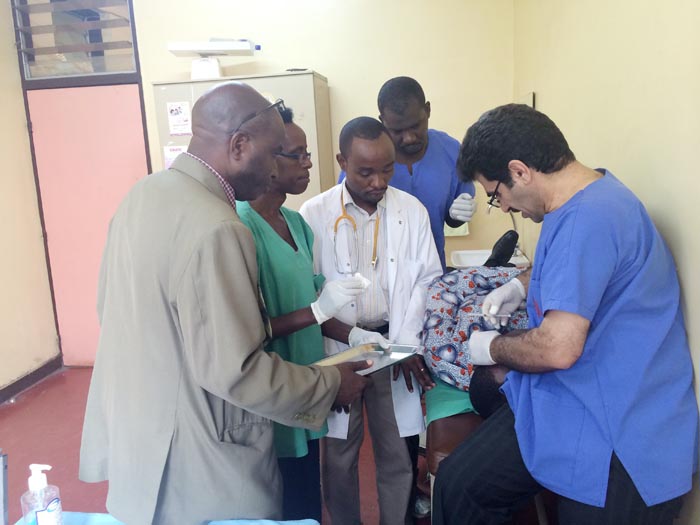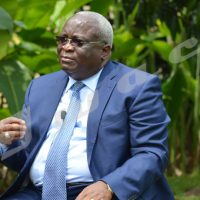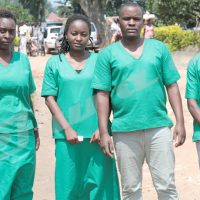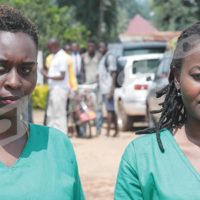Dr Seyed Nasir Emadi, dermatologist from the Islamic Republic of Iran, is in Burundi to treat patients and train Burundian doctors.-By Diane Uwimana
Dr Seyed Nasir is in Burundi with a dual mission of education and treatment. “The education is very important”, he says. “I want to train Burundian doctors so that they can independently treat skin diseases.” Emadi began his work on 2 December 2014 at the Roi Khaled Hospital in Bujumbura. During the three weeks of his consultations, patients will not pay fees. “It is a free of charge. I have brought medicine and equipment for the team being trained.”
Joselyne Mpawenimana, 29, from Kirundo province suffers from skin disease on her legs. She welcomes the arrival of the dermatologist. “I suffer from this disease since six months and my legs are now infected. Many doctors from Kirundo province prescribed me gastro-intestine medicine, but that doesn’t help”, she explains. She now received adequate medicine and the advice to wear socks to protect her legs from infections.
Paul, 16, from Bubanza province, suffers from skin disease since his childhood. He has itching spots all over his body. “My parents have tried to look for doctors to cure me in vain. I hope that the Iranian dermatologist will treat me”, he says.
Dr Pontien Ndabashinze, the Director of Roi Khaled Hospital, mentions that Burundi has a lack of dermatologists. “Having some doctors trained in recognizing and treating skin diseases will help Burundian patients significantly”, he says, adding that about 200 patients have already enrolled to be treated by the Iranian dermatologist.
Besides learning the theory, Burundian doctors and specialists will practice surgery (skin diseases, cancer, and benign diseases) and how to manage a patient with skin problems. “They will learn how to diagnose, treat and follow-up on a patient”, Dr Nasir Emadi emphasises.
However, Burundian patients do not consult dermatologist perhaps due to the poverty. Dr Elie Mupera, the one Burundian dermatologist that the country possesses, indicates that he consults about 15 to 20 patients per day. “The demand does not match to the real needs. Having access to health care remains a big challenge for many Burundians. Because they are poor, they tend to neglect skin diseases, as they have other priorities.”



















 IWACU Open Data
IWACU Open Data

